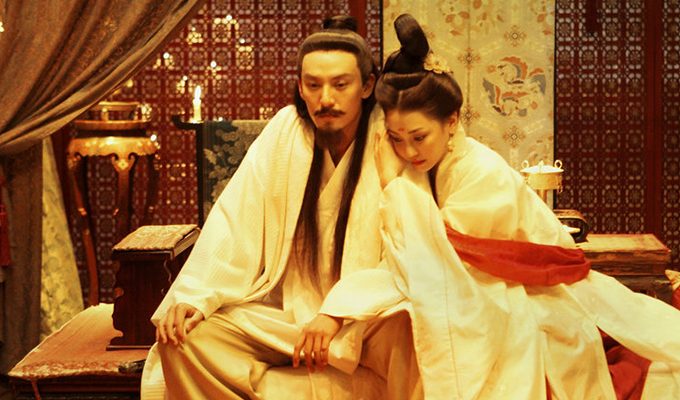Martial arts movies are generally more heavily edited and faster paced than your work. Did you ever consider employing traditional wuxia techniques for “The Assassin?”
I was very influenced by the Japanese samurai films of the time, and they are very, very different from Chinese martial-arts films as a genre, because they’re grounded in physics. People are limited by the gravity that we experience on a daily basis. I think that was more of an inspiration. Furthermore, this particular story from the Tang legends is written in a realistic tone, and that matched very well with my previous style. I see realism as one of the main things I wanted to maintain in this particular film. Even though it’s a “wuxia” film, I want all the movements and all the action to be rooted in physics —no one is defying gravity, flying around in the air, and doing things that are completely beyond human capabilities. That’s the reason I made this film in a realistic way. There might be fast moving action, but those are the movements they would have learned through training.
You generally don’t do a lot of rehearsing, but the action in “The Assassin” would seem to demand at least some. How did you go about crafting the film’s centerpiece skirmishes?
A lot of films I’ve shot in the past are about daily lives, and so you don’t need almost any rehearsal at all, because when you start memorizing everything —dialogue, movements— it can become very unnatural. That’s why I’ve made a point to not rehearse in my previous films.
However, there are a lot of action sequences in “The Assassin,” and it would have been impossible to shoot those parts without any rehearsal. So I divided those action sequences into small fragments, and I shot them in small doses, one at a time. I would ask the actors who were involved in those particular scenes to really practice the choreography and how they were going to fight, as a duo or as a group. They had to familiarize themselves with the action and build muscle memory so they could embody those movements. These actors are not martial artists, so they had to start from scratch and really learn how to interact and fight each other in small fragments.
Even with these small fragments, I had to shoot them again and again and again. Sometimes, I’d be shooting a scene and realize that I was not getting what I want, and I’d have to completely change the scene so the actors would hopefully find the right way to interact with each other. We went to many different locations, and they’d have to fight in very, very high altitudes too —in Hubei province and in Mongolia’s silver barked forest, and later on I also built a set so they could fight on the roof. It was all highly choreographed, but at the same time, we did it in small doses so we could reshoot, and do retakes.

Your last film, “Flight of the Red Balloon” was completed in 2007. Was the complicated action of “The Assassin” the reason it took so long to make?
It’s not that I’ve just been making this film for the past 7-8 years. For three years, I was serving as a chair for the Taipei Film Festival, and I also served as a chair of the Golden Horse Film Festival and Awards for five years. During that period, I might have had time to think about the script, but I didn’t have time for shooting because I wanted to devote myself to my role as a chairperson for these two events; I really wanted to restructure how they put together these organizations so they could sustain themselves.
When I finished my tenure as a chair at these two institutions, I devoted all of my time toward this film. From the script to the completion of the film, it was about three years. So it wasn’t eight years! But it was definitely still longer than I usually shoot.
While the oblique style of “The Assassin” will be familiar to your fans, are you worried that it may disappoint “wuxia” aficionados expecting something more conventional?
This is a problem I’ve had throughout my career, and it should be very obvious that I don’t make films based on the market or based on the audience. As a director, it’s more important that I do things in my own style, without thinking about the market or the audience or trying to mimic the traditional way of making films. It’s easier for me to just do me, and to do the styles and the philosophies that I adhere to.
After seeing “The Assassin,” many will say that they don’t understand it, and that it’s very, very hard to grasp. But after the second time and the third time, it’ll be much clearer about what is actually going on! So it’s funny that, with the entire marketing and promotion of this film, we’re actually saying ahead of time, “You might not understand it the first time, but if you come back a second or third time, you’ll get it!”
“The Assassin” opens in limited release on October 16th.

